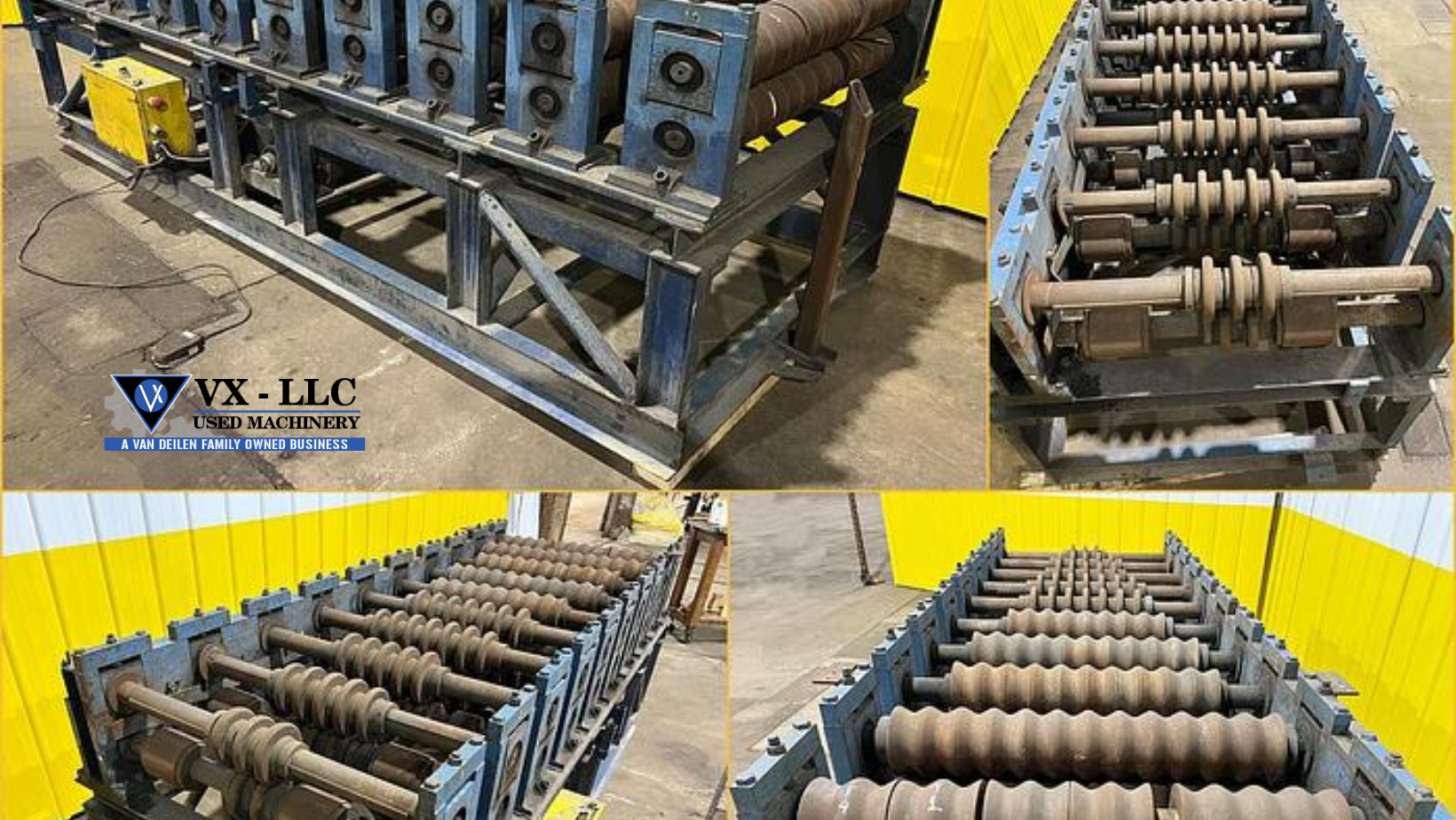What Are Rolling Mills & How Are They Used?

Industrial Rolling Mills
At VX LLC, we specialize in the supply of rolling mills, essential machines in the metalworking industry that play a crucial role in manipulating metal's physical properties. Rolling mills are designed to pass metal stock—typically steel—through one or more pairs of rolls to reduce its thickness and ensure uniformity across its entirety.
This process involves squeezing and compressing the metal between heavy rolls, which alters its thickness and enhances its grain structure, making it more consistent and better suited for a wide range of industrial applications.
Whether for creating simple components or complex precision parts, rolling mills are integral to producing high-quality metal products.
Types of Rolling Mills and Their Applications
Rolling mills are designed to cater to various metalworking needs, each suited to specific metal types and applications.
Here’s a breakdown of the common types of rolling mills and their typical uses in the industry:
- Two-High Rolling Mills:
- Consists of two rolls placed one above the other.
- Rotate in opposite directions; suitable for flat rolling.
- Can be reversed to pass the metal back and forth.
- Often used for basic shaping of sturdy materials like carbon steel.
- Three-High Rolling Mills:
- Feature three rolls with the middle one rotating opposite to the outer two.
- Allow for continuous rolling, enhancing efficiency by eliminating the need to reverse the workpiece.
- Useful for precise thickness control in the final product.
- Four-High Rolling Mills:
- Comprise two smaller rolls supported by larger backup rolls.
- Provide finer control over the finished sheet, reducing deflection and maintaining flatness.
- Ideal for producing high-quality thin sheets of metals like stainless steel.
- Cluster Rolling Mills:
- Include multiple backup rolls supporting each main roll.
- Enable rolling of very thin or flexible materials without deformation.
- Typically used for high-precision metals such as aluminum and its alloys.
- Tandem Rolling Mills:
- Consists of several stands with rolls in a row, allowing sequential rolling.
- Used for mass production of consistent quality, such as sheets for automotive bodies or rail tracks.

Advancements in Rolling Mills
Rolling mills have undergone significant technological advancements, incorporating automation and computer control systems that have revolutionized the metal forming industry. These modernizations include integrating sophisticated software that manages rolling speeds, pressure adjustments, and material handling with greater precision, leading to increased operational efficiency and consistency in product quality.
Additionally, the introduction of new and improved roller materials, such as advanced alloys and composite materials, has extended the life span of these components and reduced maintenance needs. These advancements enhance the production capabilities of rolling mills and contribute to a more sustainable manufacturing process by minimizing waste and energy consumption, thereby reducing the overall environmental impact.
These innovations ensure that rolling mills remain at the forefront of metalworking technology, continuously improving to meet the industry's evolving demands.
Challenges and Future Trends
As environmental regulations tighten, manufacturers are pressured to reduce energy consumption and waste, prompting a shift towards more eco-friendly production methods. Furthermore, the industry must continuously innovate to accommodate advanced materials, such as lightweight alloys and composites, which are becoming prevalent due to their application in sectors like automotive and aerospace for fuel efficiency.
Future trends in rolling mill technology will likely emphasize further automation and data integration, enabling real-time control and optimization of the rolling processes. Innovations like machine learning and AI could lead to smarter, self-adjusting mills that respond dynamically to material variances and production anomalies, enhancing efficiency and product quality while meeting stringent environmental standards.
Ready To Buy a Rolling Mill?
At VX LLC, we understand how vital rolling mills are to the metalworking industry. These powerful machines transform raw materials into precisely engineered products essential in today’s fast-evolving markets.
Check out our inventory to find the rolling mill that meets your needs and see how our solutions can help enhance your operations.

